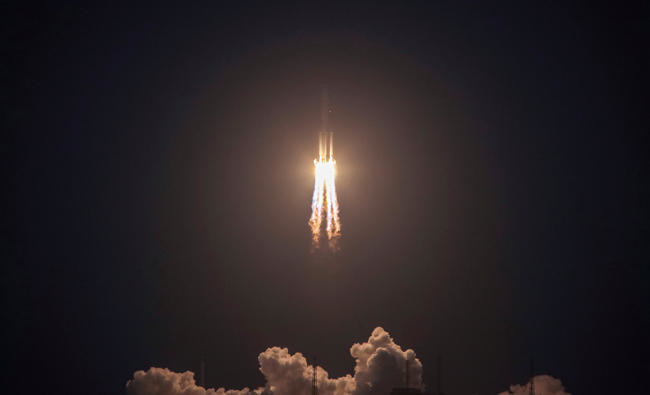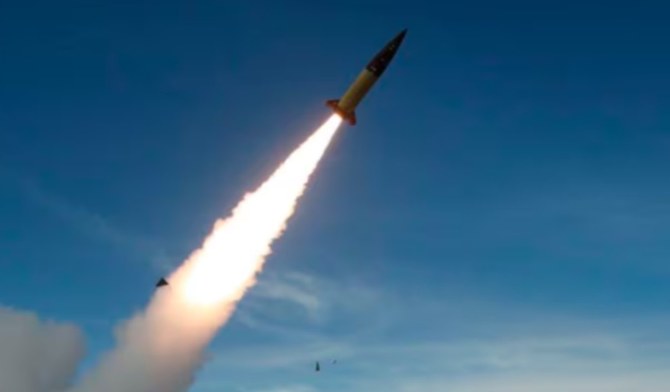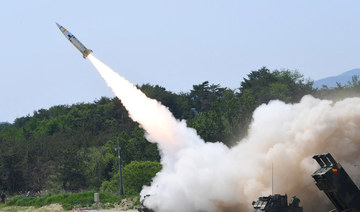BEIJING: The failure of China’s Long March 5 rocket deals a rare setback to China’s highly successful space program that could delay plans to bring back moon samples and offer rival India a chance to move ahead in the space rankings.
Experts say the still unexplained mishap shows that for all its triumphs, China’s space program is not immune to the tremendous difficulties and risks involved in working with such cutting-edge technology.
“China’s approach has been slow and prudent, trying to avoid this kind of ‘failure,’ even though they knew it was going to occur sooner or later,” Joan Johnson-Freese, an expert on China’s space program at the US Naval War College, wrote in an e-mail.
Authorities say the Long March 5 Y2 that took off Sunday in the second launch of a Long March 5 rocket, suffered an abnormality during the flight after what appeared to be a successful liftoff from the Wenchang Space Launch Center in the southern island province of Hainan. The incident is under investigation and the authorities have yet to comment on possible causes, or any knock-on effects on the program as a whole.
In a testimony to the high respect China’s program now commands, the failure drew widespread commentary in the space community, including from SpaceX founder and chief executive Elon Musk, who tweeted Sunday: “Sorry to hear about China launch failure today. I know how painful that is to the people who designed & built it.”
Nicknamed “Chubby 5” for its massive, 5-meter (16-foot) girth, the Long March-5 is China’s largest and most brawny launch vehicle, capable of carrying 25 tons of payload into low-earth orbit and 14 tons to the more distant geostationary transfer orbit in which a satellite orbits constantly above a fixed position on the earth’s surface
That’s more than double that of the Long March 7, the backbone of the Chinese launching fleet, making it the linchpin for launch duties requiring such massive heft such as interplanetary travel.
First among those is the mission slated for November by the Chang’e 5 probe to land a rover on the moon before returning to Earth with samples — the first time that has been done since 1976. China’s most technically demanding mission to date, it had been put off before because of funding and then technology, Johnson-Freese said.
While the Long March 5 has suffered other setbacks, the lunar mission is “certainly the most visible one,” she said.
Other upcoming Chinese missions include the launch next year of the 20-ton core module for China’s orbiting Tiangong 2 space station, along with specialized components for the 60-ton station that is due to come on-line in 2022 and other massive payloads in future. The Long March 5 was also due to be the launch vehicle for a Mars rover planned for the mid 2020s.
Problems with the Long March 5 may stem from its use of liquefied gases that are less stable than the sort of propellants used in other rockets, said Morris Jones, an Australian space analyst and regular contributor to SpaceDaily.com. Unlike earlier rockets that used highly toxic fuels, the Long March 5 burns a more environmentally friendly and less expensive kerosene-liquid oxygen-liquid hydrogen mix — which is more complex and harder to regulate.
Jones called such setbacks typical of the development phase of a new rocket and said additional launches may be required to work out the kinks. Sunday’s launch failure will delay the Chang’e 5 mission at least until next year, while there may also be a small delay in launching the space station components, Jones said.
Finding a fix “takes a lot of time and effort but there is no other way to produce a reliable rocket,” Jones said.
Test launched for the first time last year in what had been a towering success, the 57-meter (187-foot) two-stage rocket is just slightly less powerful than the most powerful rocket in service, the US’ United Launch Alliance’s Delta IV, although SpaceX’s Falcon Heavy is designed to carry a payload into low-earth orbit of more than 50 tons.
Since the first launch in 1970, China’s Long March series of rockets have been a remarkably solid bet, achieving a success rate of around 95 percent. That’s helped facilitate a program that conducted its first crewed space mission in 2003, making China only the third country after Russia and the US to do so, put a pair of space stations into orbit, and landed its Yutu, or “Jade Rabbit” rover on the moon. Administrators suggest a manned landing on the moon may also be in the program’s future.
Not all has been smooth sailing, however.
A Long March 3B rocket launched June 18 launch placed its communications satellite in a lower-than planned for orbit. Though the satellite is climbing into its proper altitude on its own, the effort will reduce its useful lifespan in space. A least two similar incidents reportedly occurred last year.
With two mishaps coming so close together, Chinese space officials may decide to take a pause to re-evaluate manufacturing quality or other aspects of the program, said Stephen Clark of Spaceflight Now. That may include launching another Long March 5 test flight before attempting the Chang’e 5 mission, Clark said.
Both Clark and Johnson-Freese said they hope the failure doesn’t deter Chinese officials in their pursuit of greater transparency and international participation in the country’s space program.
Yet, rivals, primarily India, may see the setback as an opportunity to steal a march on China, whose geostrategic influence has benefited significantly from its role as a technology leader in space, said Johnson-Freese.
India’s Mars Orbiter Mission, called Mangalyaan, is already orbiting the red planet, years before China is ready to launch such a mission, and it won acclaim and a place in the record books earlier this year by placing 104 nano satellites in orbit from a single rocket.
“The failure of the Long March 5 may provide a window of opportunity for India,” said Johnson-Freese.
China rocket failure likely to set back next space missions
China rocket failure likely to set back next space missions

‘Uncommitted’ organizers will join campus protesters in Michigan over Gaza

- Student protests in the US over the war in Gaza have intensified and expanded over the past week
- Democrats have become increasingly uneasy over the US support for Israel as the death toll and destruction climb in Gaza
WASHINGTON: Organizers behind the “uncommitted” political movement against President Joe Biden’s staunch support for Israel’s war against Hamas will travel to the University of Michigan’s campus on Thursday to join students protesting the war.
Student protests in the US over the war in Gaza have intensified and expanded over the past week after police first arrested students at Columbia, with so-called Gaza solidarity encampments established at colleges, including Yale, and New York University. Police have been called in to several campuses to arrest hundreds of student demonstrators.
Uncommitted organizers will travel to the University of Michigan’s Ann Arbor campus, they told Reuters, bringing together a political movement that’s disrupted Biden events and amassed hundreds of thousands of votes in Democratic primaries and a student movement that’s drawn students and faculty of various backgrounds.
Biden won Michigan by less than a 3 percent margin in 2020.
Democrats have become increasingly uneasy over the US support for Israel as the death toll and destruction climb in Gaza. A growing revolt inside the Democratic base signifies the challenge Biden faces in bringing together the coalition he needs to defeat Republican frontrunner and former President Donald Trump.
“President Biden is choosing to put his hands over his ears and ignore the hundreds of thousands of people who have already come out against the war at the ballot box,” said Abbas Alawieh, a prominent “Uncommitted” organizer, who is going to Ann Arbor with Layla Elabed, another Michigan organizer.
“Signing into law more money for Israel is sending a clear message to uncommitted voters, young voters that he doesn’t care to engage seriously with our demands to end this war,” he said, referring to the $26 billion in new aid Biden recently approved.
Alawieh said the uncommitted movement has not been coordinating with student groups so far. “We have an electoral focus, but we certainly see the demands of student protesters, who are calling for peace,” he said.
On campuses where protests have broken out, students have issued calls for a permanent ceasefire in Gaza, an end to US military assistance for Israel, university divestment from arms suppliers and other companies profiting from the war, and amnesty for students and faculty members who have been disciplined or fired for protesting.
Biden told reporters on Monday that he condemned both “antisemitic protests” and “those who don’t understand what’s going on with the Palestinians.” Biden campaign spokeswoman Lauren Hitt has said the president “shares the goal for an end to the violence and a just, lasting peace in the Middle East. He’s working tirelessly to that end.”
Trump called the campus protest situation “a mess” as he walked into his criminal trial in New York.
The uncommitted movement amassed sizable vote totals in Michigan, Minnesota and Hawaii primaries and had won 25 delegates as of the beginning of April. They are preparing to target the Democratic National Convention in Chicago in August, where Biden is expected to be nominated.
Polls show Biden and Trump running neck-and-neck ahead of their Nov. 5 election rematch nationally. Biden’s 2020 victory was due to narrow wins in key swing states like Michigan.
US nudges Germany on long-range missiles for Ukraine

- Washington confirmed the day before that it had sent Ukraine a variant of the ATACMS missile with a range of 300 kilometers
- “In terms of Taurus... this is a decision for Germany,” a senior US defense official told journalists
WASHINGTON: The United States hopes decisions by it and allied countries to send long-range missiles to Ukraine may encourage similar action by Germany, which has so far refused to provide its Taurus missiles, a US official said Thursday.
Washington confirmed the day before that it had sent Ukraine a variant of the ATACMS missile with a range of 300 kilometers (190 miles), while France and Britain have respectively supplied SCALP and Storm Shadow missiles, both of which have a range of about 250 kilometers.
“In terms of Taurus... this is a decision for Germany,” a senior US defense official told journalists when asked if the provision of long-range ATACMS could clear the way for Taurus missiles to be sent to Kyiv.
“But certainly the US provision of ATACMS as well as prior decisions by the UK and France to provide long-range cruise missiles, we would certainly hope that this would be a factor,” the official said, speaking on condition of anonymity.
Kyiv has long pushed for Germany to provide it with Taurus missiles — which can reach targets up to 500 kilometers away — to help its fight against invading Russian forces.
But Berlin has declined to send the missiles, fearing that it would lead to an escalation of the more-than-two-year-old conflict.
Moroccan man guilty of murdering man in UK in revenge for Gaza

- Ahmed Alid killed his 70-year-old victim after approaching him from behind
- After his arrest, he told detectives he had committed the acts because of the conflict in Gaza, and in revenge for Israel killing innocent children
LONDON: A Moroccan man who stabbed to death a passer-by in the street in northeast England in what he later told police was revenge for Israeli action in Gaza was found guilty of murder on Thursday.
Ahmed Alid, 45, who had sought asylum in Britain, killed his 70-year-old victim after approaching him from behind on a road in Hartlepool the early hours of Oct. 15 last year, having previously attacked his housemate with two knives, prosecutors said.
After his arrest, he told detectives he had committed the acts because of the conflict in Gaza, and in revenge for Israel killing innocent children, blaming Britain for creating Israel, Britain’s Crown Prosecution Service (CPS) said.
Alid said if he had had a machine gun, and more weapons, he would have killed more people.
“By his own admission, Ahmed Alid would have killed more people on that day if he had been able to,” Nick Price, Head of the CPS Special Crime and Counter Terrorism Division, said in a statement.
“Whatever his views were on the conflict in Gaza, this was a man who chose to attack two innocent people with a knife, and the consequences were devastating.”
Alid had first used two knives to attack his sleeping housemate, to whom he had become aggressive after learning of his conversion to Christianity, stabbing him six times while shouting “Allahu Akbar,” or “god is greatest,” the CPS said.
The 32-year-old housemate, one of five asylum seekers who shared the property, managed to fight him off and another occupant came to his aid. Alid left the house with one of the knives and walked toward the center of Hartlepool.
He passed Terence Carney on the opposite side of the road before circling back and attacking him from behind, stabbing him six times in the chest, abdomen and back. Carney died shortly after police arrived.
Following his interview with police, he attacked the two female detectives, with one suffering injuries to her shoulder and wrist.
He was found guilty at Teeside Crown Court of murder, attempted murder and two counts of assaulting an emergency worker. He will be sentenced on May 17, when the judge will decide if his actions were related to terrorism.
India dismisses US human rights report as ‘deeply biased’

- Report found “significant” abuses in India’s Manipur state and attacks on minorities, dissenters
- India’s foreign ministry spokesperson says New Delhi does not attach any “value” to the report
NEW DELHI: New Delhi said on Thursday it does not attach any value to a US State Department report critical of human rights in India, and called it deeply biased.
The annual human rights assessment released earlier this week found “significant” abuses in India’s northeastern Manipur state last year and attacks on minorities, journalists and dissenting voices in the rest of the country.
Asked about it, Indian foreign ministry spokesperson Randhir Jasiwal told journalists on Thursday that the report “as per our understanding, is deeply biased and reflects a very poor understanding of India.”
“We attach no value to it and urge you to also do the same,” Jaiswal said.
Responding to a question about the growing protests on US university campuses against Israel’s offensive in Gaza that has killed more than 33,000 people, Jaiswal said that “there has to be the right balance between freedom of expression, sense of responsibility and public safety and order.”
He added that “democracies in particular should display this understanding in regard to other fellow democracies, after all we are all judged by what we do at home and not what we say abroad.”
While India and the US have a tight partnership, and Washington wants New Delhi to be a strategic counterweight to China, the relationship has encountered some minor bumps recently.
In March New Delhi dismissed US concerns over the implementation of a contentious Indian citizenship law, calling them “misplaced” and “unwarranted,” and objected to a US State Department official’s remarks over the arrest of a key opposition leader.
Last year Washington accused Indian agents of being involved in a failed assassination plot against a Sikh separatist leader in the US, and warned New Delhi about it.
India has said it has launched an investigation into Washington’s accusations but there has not been any update about the investigation’s status or findings.
Sweden to send NATO troops to Latvia next year: PM

- The Swedish troop contribution was the first to be announced since the Scandinavian country joined NATO in March
- The battalion would be comprised of around 400 to 500 troops
STOCKHOLM: Sweden will next year contribute a reduced battalion to NATO forces in Latvia to help support the Baltic state following Russia’s invasion of Ukraine, Prime Minister Ulf Kristersson said Thursday.
The Swedish troop contribution was the first to be announced since the Scandinavian country joined NATO in March.
Kristersson had in January announced that Sweden would likely send a battalion to take part in NATO’s permanent multinational mission in Latvia, dubbed the Enhanced Forward Presence, aimed at boosting defense capacity in the region.
“The government this morning gave Sweden’s armed forces the formal task of planning and preparing for the Swedish contribution of a reduced mechanized battalion to NATO’s forward land forces in Latvia,” Kristersson told reporters during a press conference with his Latvian counterpart Evika Silina.
He said the battalion, which will be in Latvia for six months, would be comprised of around 400 to 500 troops.
“Our aim is a force contribution, including CV 90s armored vehicles and Leopard 2 main battle tanks.”
“We’re planning for the deployment early next year after a parliament decision,” he said.
















